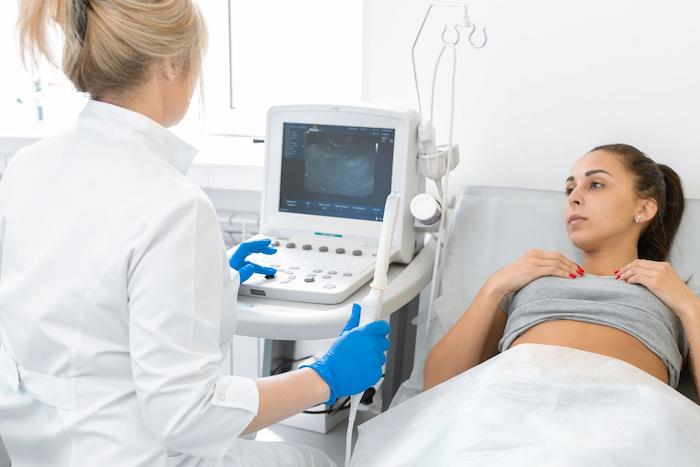Ectopic Pregnancy: Understand causes, symptoms and treatments
Ectopic pregnancy, a condition little known by many, is a subject that deserves to be explored due to its importance for women’s health. It is a worrisome medical situation in which the fertilized egg implants outside the uterus, commonly in the fallopian tubes, and begins to develop there, an inappropriate place for a fetus to grow.
Ectopic pregnancy, if not diagnosed and treated in time, can lead to serious complications and even death. Although it represents only 1 to 2% of all pregnancies, its occurrence has increased in recent years, making understanding and awareness of this condition even more urgent.
This text aims to lead you, the reader, to a deeper understanding of what ectopic pregnancy is, its causes, symptoms, possible complications and treatment methods. With knowledge, we can make a difference in the health and well-being of women around the world. Join us on this informative journey.
What is ectopic pregnancy?
Ectopic pregnancy is a medical condition that occurs when a fertilized egg implants and begins to grow outside the uterine cavity. Although the most common place for this to happen is in the fallopian tubes – hence often called a “tubal pregnancy” – the fertilized egg can also attach itself to the ovary, abdominal cavity or cervix.
Normally, in a healthy pregnancy, the egg is fertilized by the sperm in the fallopian tube and then travels to the uterus, where it implants and grows. In ectopic pregnancy, this displacement is interrupted, and the embryo begins to develop in the wrong place. Unfortunately, these places are not suitable to support the life of the fetus, as they do not have the necessary conditions for its complete development.
It is important to emphasize that ectopic pregnancy is a medical emergency. If not treated in time, it can rupture the site where the embryo was implanted and lead to internal bleeding, being one of the main causes of maternal mortality in the first trimester of pregnancy.
Main causes of ectopic pregnancy
The causes are still not fully understood by doctors and researchers, but we do know that certain risk factors can increase the chances of a pregnancy developing outside the womb. It is noteworthy that the presence of one or more of these factors does not guarantee the occurrence of an ectopic pregnancy, just as their absence does not exclude it. Some of these causes include:
- Pelvic inflammatory disease (PID) : This condition, usually caused by a sexually transmitted infection, can cause damage and blockages in the fallopian tubes, preventing the fertilized egg from traveling normally to the uterus;
- Previous pelvic or tubal surgery : Surgery in these regions can cause scarring or deformities in the fallopian tubes, making it difficult for the fertilized egg to travel;
- Smoking : Cigarette smoking has been linked to a higher risk of ectopic pregnancy. It is believed that the substances present in cigarettes can affect the functioning and mobility of the fallopian tubes;
- Use of Assisted Reproductive Technologies : Women who resort to fertility treatments such as IVF are more likely to have an ectopic pregnancy;
- Previous ectopic pregnancy : If you’ve had it before, the chances of having another one are significantly increased;
- Endometriosis : This condition, which causes uterine tissue to grow outside the uterus, can block or change the shape of the fallopian tubes.
These are just a few examples of possible causes of ectopic pregnancy. If you think you might be at risk, it’s always important to discuss your concerns with a healthcare professional.
Is it possible to carry an ectopic pregnancy to term?
Unfortunately, it is not possible to carry an ectopic pregnancy to term. The uterus is the only place in a woman’s body designed to support the full development of a fetus. The other areas where a fertilized egg can implant during an ectopic pregnancy, such as the fallopian tubes or the abdominal cavity, do not have the right conditions for this.

In these places, the fetus cannot develop properly, and the growth of the embryo can lead to the rupture of the organ in which it was implanted, causing a medical emergency situation. The rupture can cause massive internal bleeding, which is a life-threatening condition for the woman.
For these reasons, it is considered a medical emergency that requires immediate treatment, usually with medication or surgery. Early detection is essential to avoid complications, so it is very important to have regular follow-up with a health professional during pregnancy.
What are the symptoms?
Symptoms can vary and in some cases can resemble those of a normal pregnancy or other conditions such as appendicitis. However, there are some signs and symptoms that could suggest the possibility of an ectopic pregnancy. They include:
- Menstrual delay : While this can be a sign of normal pregnancy, it can also indicate an ectopic pregnancy, especially if coupled with other symptoms.
- Abdominal or pelvic pain : This pain, usually unilateral, can be sharp, constant or intermittent. It may be more intense during movement or physical activity.
- Vaginal bleeding : Although it can be confused with menstruation, vaginal bleeding can be a sign. It can range from mild to severe and be darker in color than normal menstrual bleeding.
- Signs of Shock : In more severe cases, an ectopic pregnancy can lead to signs of shock such as dizziness, fainting, a drop in blood pressure and an increased heart rate.
- Discomfort when having a bowel movement or urinating : In some cases, there may be pain or discomfort when urinating or having a bowel movement.
If you experience any of these symptoms, especially if you have risk factors for an ectopic pregnancy, it’s critical to seek medical attention right away. Remember, this is a serious medical condition that requires immediate attention.
